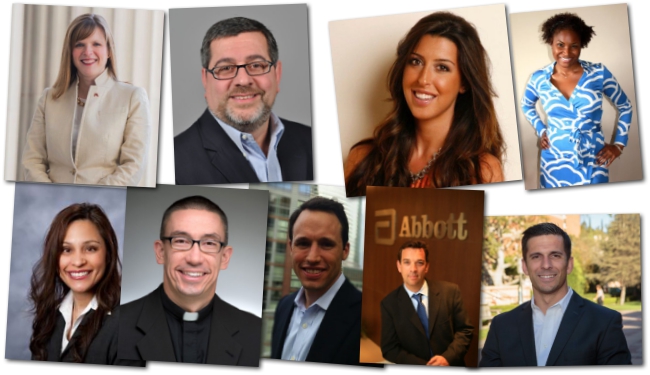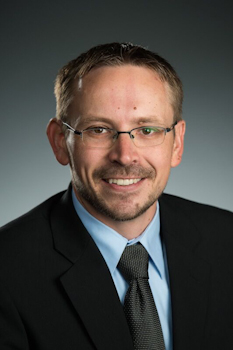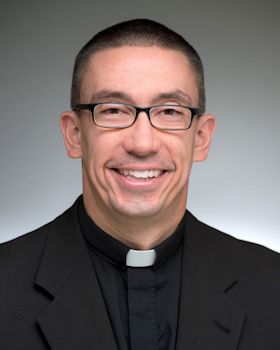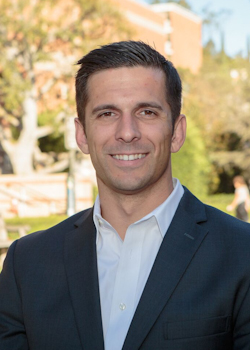You wouldn’t expect Scott Gates, 33, to have had time for an Executive MBA program. The president and COO of Western Window Systems, Gates was grappling with a challenging transformation. Four years ago, his company was another “sleepy, 50-year-old window and door manufacturer.” Since then, the firm’s revenues have increased more than six-fold by smartly building on a reputation for quality and service with new products and robust marketing. That kind of progress would delight most executives, but Gates still felt that some formal business training would prepare him for the company’s next challenge. “I knew that someday I wanted to be a CEO,” he tells Poets&Quants. “And I also knew that I needed to grow in several areas of business before I would be ready.”
AN ENDURANCE TEST THAT EXPOSES LIMITATIONS
Today Gates is, in fact, taking the reins as his company as CEO. To get ready for the role, he had enrolled in the Executive MBA program at Arizona State University’s W. P. Carey School of Business in 2013. His toughest lesson? Pinpointing his personal limitations. “You learn quickly that you will never be an expert in all of the various subjects,” Gates points out. “An MBA exposes you to all of the different components of business…However, it also highlights for you just how much help you will need to succeed at the highest levels.”
Personally, the EMBA program became an endurance test for Gates, stretching him to better set priorities and focus in the moment. “The difficult part of business school is the sacrifices you end up being forced to make with your family,” Gates adds. “We all enter the program with busy careers and social lives, and then we inject 20 to 30 hours of homework and 16 hours of classroom time…and the only way we can accommodate the new demands is by making sacrifices in droves.” In the end it was worth it for Gates. “It is not an exaggeration to say that my MBA has fundamentally changed the way I look at and approach business. I am much more prepared, and much more confident regarding the unique challenges of running a $100 million business.”
WHAT MAKES A TOP EXECUTIVE MBA?
Gates is one of the 30 most exceptional Executive MBA graduates from the Class of 2015. Unlike full-time MBA students, executives who gain an Executive version of the degree must balance work and family with an often grueling educational load. Gaining the degree and the confidence that comes with it is no easy task. This inaugural feature from Poets&Quants spotlights the best-and-brightest EMBAs who’ve differentiated themselves from their peers. And this year’s group is as diverse as it is distinguished.
For starters, you’ll find nearly as many physicians, attorneys and researchers on the list as you will c-suite executives. As you’d expect, men outnumber women on the list, but the 17-to-13 margin points to an increase in the number and quality of women pursuing leadership roles. More surprisingly, several “best-and-brightest” EMBAs are earning their MBAs in their 50s – a trend that signifies the flexibility of the format as much as it foreshadows the lengthening career spans and changing business dynamics that require more adaptive skills.
To compile this list of outstanding EMBAs, Poets&Quants extended invitations to 60 of the top-ranked EMBA programs (including 12 programs from outside the United States) to submit one nominee who exemplified the best of their respective schools. In the end, 37 schools returned nominations, with Poets&Quants evaluating candidates on their professional achievements, academic prowess, and absorbing personal narratives.
LIST INCLUDES A CATHOLIC PRIEST AND A WOUNDED WARRIOR
When the general public thinks of Executive MBAs, they often picture thirty- and forty-something executives taking weekend classes (on the company dime) to prep them for the next promotion. That model is largely a reflection of the past. No doubt, you’ll find EMBAs from Goldman Sachs and big pharma on the list. But increasingly, you will also discover students who are paying their own way, working for smaller to mid-sized companies, and eager to try their hand at a startup. The classes also populated with students that few might expect to find in a business school classroom.
Take Father Pete McCormick, 38, the director of the campus ministry at the University of Notre Dame. He earned his EMBA at the school’s Mendoza College of Business. Why would a priest need a business degree? For Father Pete, leadership skills enhanced his ability to better service his God and his flock. What’s more, he says the training made him less risk averse and more strategic, replacing gut instincts with quantitative analysis in evaluating challenges. Even more, his interactions with students provided inspiration, reminding him of the bigger picture. “If you get caught up in all that needs to be done, things become overwhelming very quickly,” he reflects. “There will be times when there are struggles, but always remember why you chose this path and be willing to sacrifice on its behalf.”
Another top EMBA graduate, UCLA’s Derek Herrera, 31, is no stranger to sacrifice. In 2012, he was left paralyzed from the waist down, taking a bullet while serving as a Marine Captain in Afghanistan. Aided by an exoskeleton that enables him to walk, Herrera earned his MBA at Anderson and has leveraged the degree by launching his own business. He credits his peers for his success, quoting the school’s admissions director that “it takes diamonds to polish diamonds.”
And the ability to work with such talent was Herrera’s biggest takeaway. “No matter what your title is or what industry you work in, you will be required to work in a team or interact with consumers and clients in a professional manner,” Herrera notes. “At the end of the day, individual skills are only a portion of what is required to be successful in business. Personal relationships and teamwork play a very important role in any company and I am very happy that the MBA program forces every student to grow in this area.”
Go to next page for in-depth profiles of 30 of the best-and-brightest EMBAs









Questions about this article? Email us or leave a comment below.